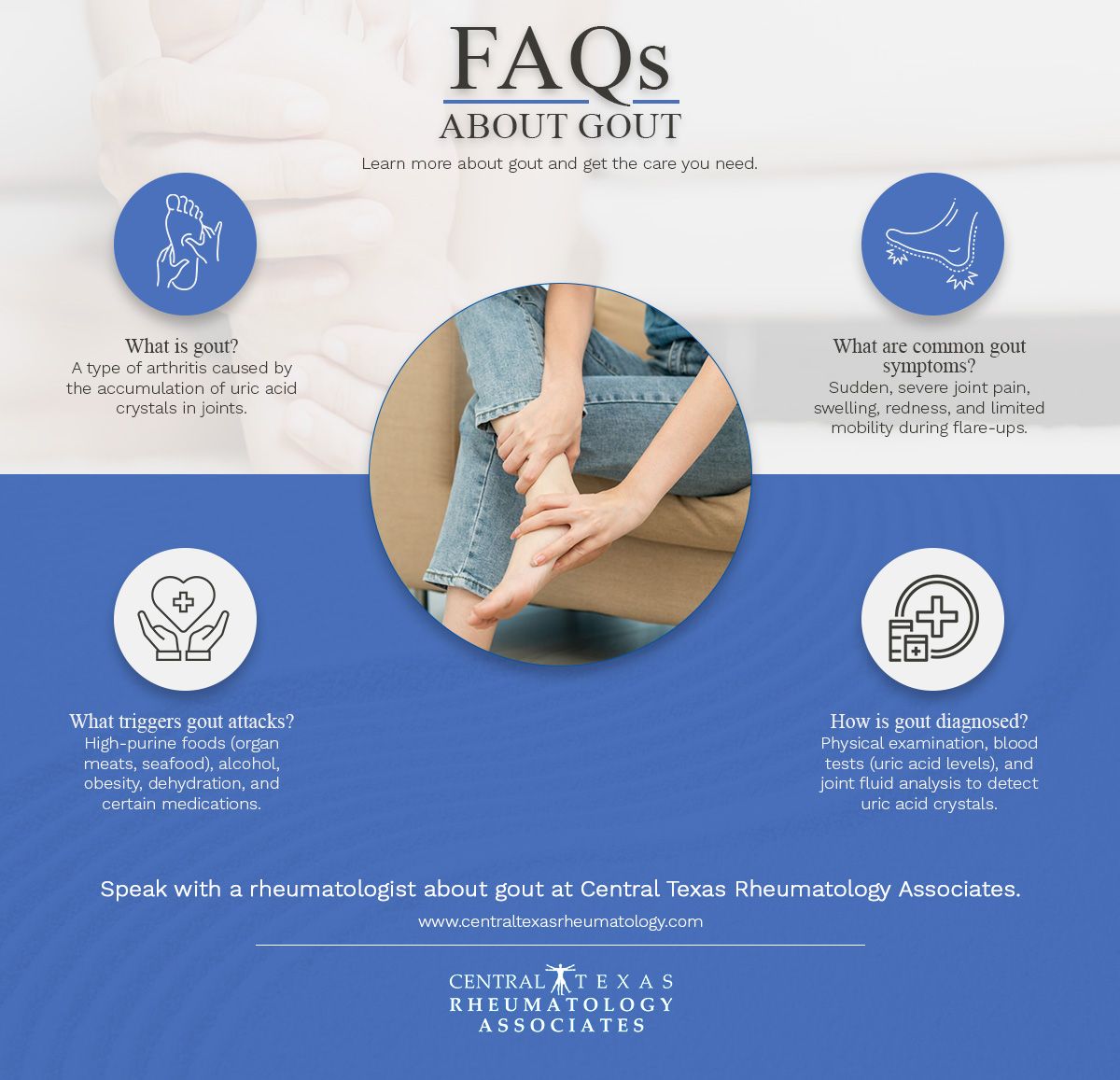Gout is a painful and often debilitating form of arthritis that affects millions of people worldwide. If you're one of the many individuals who have been diagnosed with gout in Central Texas or suspect you might have it, consulting a rheumatologist at Central Texas Rheumatology Associates (CTRA) is a crucial step in managing the condition effectively. To make the most of your appointment and gain a better understanding of your condition, here are four essential questions to ask your rheumatologist about gout.
4 Questions To Ask Your Rheumatologist About Gout
4 Questions To Ask Your Rheumatologist About Gout

What Exactly is Gout and What Causes It?
Gout is caused by the buildup of uric acid crystals in the joints, leading to inflammation and severe pain. By grasping the root causes of gout, you'll be better equipped to make lifestyle changes and follow medical advice to prevent future flare-ups.

What Are the Common Triggers and Risk Factors?
Ask about specific dietary choices to avoid or limit, such as high-purine foods, which can contribute to elevated uric acid levels. Learning about potential triggers empowers you to make informed choices to minimize the impact of gout on your life.

What Are the Available Treatment Options?
Gout management involves a combination of lifestyle changes, medications, and preventive strategies. Ask about both acute and long-term treatments, including pain relief during flare-ups and medications to lower uric acid levels.

How Can I Prevent Future Flare-Ups?
Your rheumatologist can provide guidance on maintaining a healthy diet, managing your weight, staying hydrated, and avoiding triggers. Additionally, they may recommend medications or supplements that can help lower uric acid levels over time.

Open communication with your rheumatologist is crucial when it comes to managing gout effectively. At CTRA, we’re here to support you through every step of the Gout diagnosis and treatment journey. It’s time to take control of your gout management, make informed decisions, and work collaboratively with your rheumatologist to create a comprehensive plan tailored to your individual needs. Make an appointment or contact us to learn more today.
